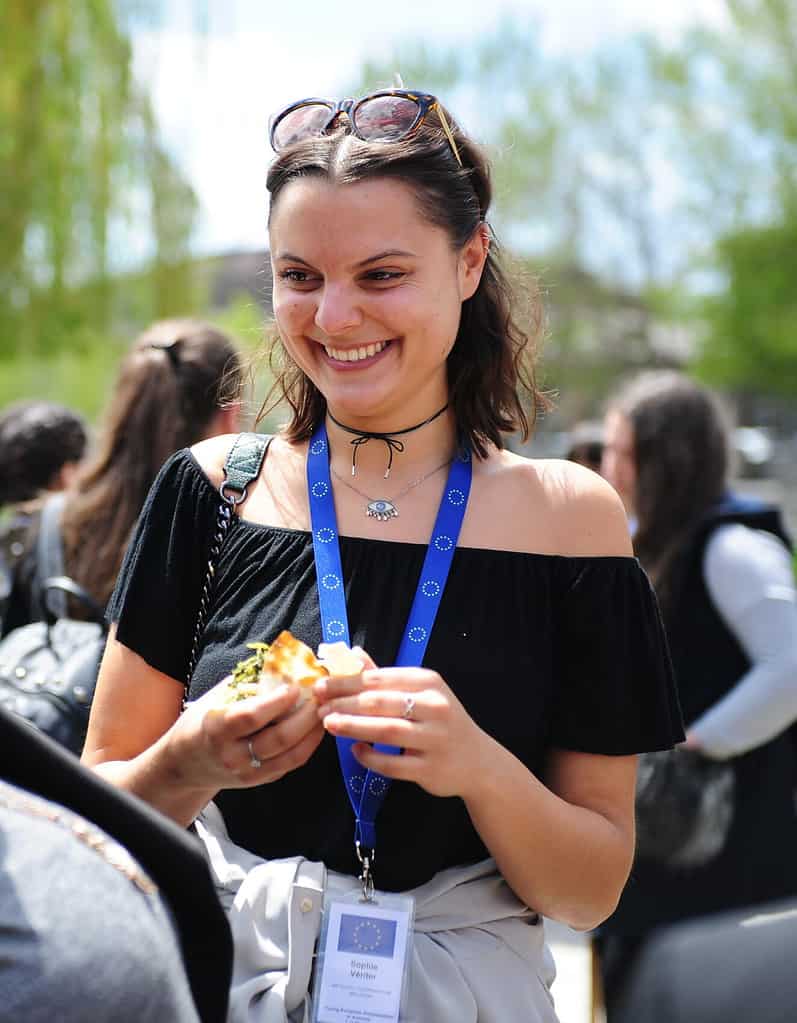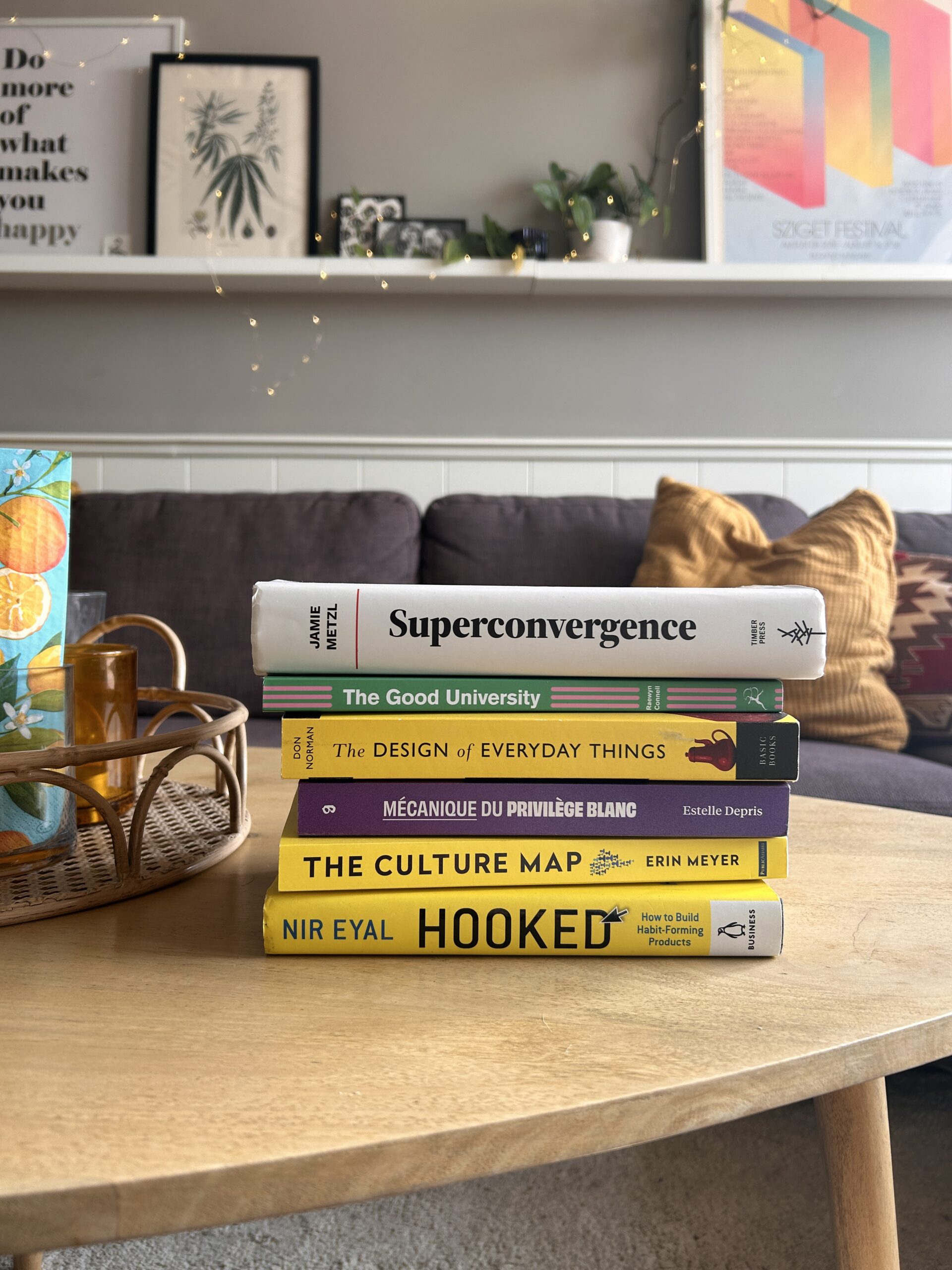The ISA Annual Convention is an academic conference organised by the International Studies Association (ISA) that brings together scholars, practitioners, and students of international studies from around the world. For the first time, I participated in the ISA Annual Convention as a PhD student and wanted to share some advice and thoughts from my experience, which made me reflect on academia more broadly. The event took place in Montréal from 14-19 March 2023.
Don’t put academics on a pedestal
As a student, it is easy to perceive academics as a superior kind of being. We learn from them and are taught to treat them with the highest respect. In addition, universities are by nature very hierarchical, which leads us to distinguish between academics based on their position: PhD candidate, post-doctoral researcher, assistant professor, associate professor, full professor, … and the list goes on. As a student, being at the very bottom of that pyramid means we tend to feel inferior most of the time.
However, participating in the ISA Convention shattered that myth. Attending different kinds of panels, you start seeing the human side of academics, the people behind the famous names. At the ISA Convention, I have encountered all sorts of levels of preparation and expertise. Some come with a beautiful deck of slides and capture the audience’s attention, whilst other awkwardly read papers with a vocabulary that was never intended to be used orally. Some engage in deep discussions and reflect critically on questions asked by the public, whilst others struggle to relate their concepts and theories to contemporary events.
"Attending all kinds of panels, you start seeing the human side of academics, the people behind the famous names."
The truth is… academics are people. Just like everywhere else in life, their skills and knowledge vary widely. Being in academia does not automatically make you bright and organised and it certainly does not make you superior to other individuals, regardless of their position or profession. My advice to fellow students would thus be to not put academics on a pedestal (as I used to). Some do differentiate themselves from the rest with their intellect and judgment, a few stand out for their dullness, but the majority of us are just normal people.
Academia is an echo-chamber of experts — The Ivory Tower
Never in my life have I been surrounded by so much expertise yet so little concern to share it with the public than in academia. At the ISA Convention, scholars, students, publishers, and a few government officials attend a global annual event sharing the latest advances in research about international studies, from diplomatic studies to international communication (but note that most presenters are from the Western world and event locations are mainly in the US). When walking around the corridors of Sheraton hotel, I wondered: Why aren’t there more journalists in here? Wouldn’t it be fantastic if local communities and NGOs could attend and connect with renowned thinkers?
As an expert on disinformation and information disorder, I am familiar with the concept of echo-chambers, which can exacerbate polarisation and conflict. Echo chambers are social environments where individuals are exposed only to information and viewpoints that confirm and ultimately reinforce their existing beliefs and biases. They are particularly popular in the digital world, but also do exist IRL (in real life). In fact, the problem is not the technology, it is the complex structure of society. Online networks tend to replicate offline ties in their composition and nature. Therefore, we should think of echo-chambers as existing IRL and being amplified online by so-called “weapons of math destructions”, i.e. flawed algorithms and mathematical models.
"Just like there are echo-chambers of conspiracy theorists, there are echo-chambers of experts and the ISA Convention seemed like an excellent example of one."
Just like there are echo-chambers of conspiracy theorists, there are echo-chambers of experts and the ISA Convention seemed like an excellent example of one. I fully understand the benefits of seeking the pursuit of knowledge and philosophy for its own sake, but I am convinced it can be reconciled with the pursuit of global public knowledge. At ISA, whilst attending a panel recognising the accomplishments of a distinguished scholar, I was struck by the idea that this person may have indeed considerably expanded our understanding of a discipline yet so few people in the world without a graduate degree in international relations would have heard about their work.
In sum, we, as scholars, ought to pay higher attention to the dissemination of science if we care about knowledge beyond experts, if we care about equality and social justice — the idea that all people should have the same rights and opportunities and that a country’s wealth and resources should benefit everyone in that country.
live from #ISA2023 ! join us Saturday 4PM for a stimulating roundtable on Diplomatic Studies and International Relations organised by the editorial team of @Hague_Jour_Dipl 💫 #diplomacy #foreignpolicy pic.twitter.com/7OSulYD1hw
— Sophie L. Vériter (@SLVeriter) March 15, 2023
My essentials at the ISA Convention
Wondering what to bring at an academic conference? Here are the products which helped me have a good experience at the ISA Convention or which I wish I had brought!

refillable water bottle

business cards

comfortable shoes

hand sanitiser
Notability: a digital notebook, particularly great for scribbling and annotating on tablets.
Notability is my go-to note-taking app. On my tablet, I use it to scribble on the go as well as reading and annotating PDF files. It basically offers all the possibilities (and much more) that a classic notebook offers, whilst taking much less space! You can also type, create mind maps, add stickers, and even download thousands of templates. With this all-in-one notebook, I never lose my notes and I have fallen in love again with handwriting and drawing!
Embracing holistic learning at academic conferences
Holistic education is an approach to teaching and learning that seeks to address the needs of the whole person, rather than just their intellectual or academic development. It recognises that individuals are multi-dimensional beings, with physical, emotional, social, and spiritual needs that are all interconnected. What I recommend students and PhD candidates is to take advantage of all opportunities around the ISA Convention to learn more about their field.
Whilst in Montréal, I loved learning about the history of Canada, touring the old town, discovering museums, visiting cultural hotspots, and trying out the vibrant cuisines of the city. All I had heard about the ISA Convention was “don’t go to all the panels”. I fully agree and would encourage to get some generous historical and cultural training whilst traveling. I only attended one or two panels per day and preciously kept the rest of my time for visits and meetings. Not only did I not feel drained when leaving the convention, but I also felt like I truly made the most of my time in Montréal. I felt rested and nourished with new creative ideas, such as the writing of this post. 🙂
"What I recommend students and PhD candidates is to take advantage of all opportunities around the ISA Convention to learn more about their field."
In addition, I would recommend attending panels that cover subjects out of your comfort zone. Again, something I had heard from elsewhere, but which I did not fully understand until I experienced it myself. Attending panels on your subjects of expertise (unless they are composed of leading scholars) will most likely result in boredom – at least that was my experience. I was excited to hear something refreshing and stimulating, and I only found that during panels from fields and disciplines which I was less familiar with. Next time, I will prepare my ISA agenda differently: browse through the programme and see what triggers my curiosity rather than search for keywords that represent my specialisation. Stay tuned to know if it was a more fruitful strategy!
Conclusion
In conclusion, participating in the ISA Annual Convention as a PhD student has given me new perspectives on academia and has been a valuable experience which I recommend to anyone. It has helped me feeling empowered and showed me the more humane side of the scholarly world. For me, the ISA Convention has also highlighted the issue of academia being an echo-chamber of experts, as I regret not seeing more efforts to share knowledge with the public. As scholars, we ought to pay higher attention to the dissemination of science if we care about social justice. Finally, I recommend embracing holistic learning at academic conferences such as the ISA Convention, taking advantage of all opportunities to explore the culture and history of the city where the event is held.
Written by Sophie L. Vériter

Hi! I’m Sophie
I am a social scientist and world explorer. In my work, I analyse the evolving meaning of security. I enjoy traveling, yoga, and electronic music in my free time. I consider myself an enthusiastic feminist and self-care advocate.




